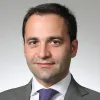Moment is near for multipolar reserve system - letter to the Financial Times by Kalin Anev Janse
Moment is near for multipolar reserve system (Financial Times, 22 May 2019)
Gillian Tett writes: “The dollar will dominate for a while yet” (May 17). She may have forgotten that history is often a lesson for the future.
Hardly anybody remembers that the Dutch guilder was the world’s reserve currency for much of the 17th and 18th centuries. If you wanted to trade, you needed the guilder. By the 19th century, the pound had replaced the guilder because of Britain’s rapid industrialisation and growing empire. Several decades later, when Europe imploded with the second world war and the US became the world’s biggest economy, the dollar quite naturally became the world’s reserve currency.
Our world is rapidly changing. We see trade wars, geopolitical investment and new economic alliances. According to most forecasts, China will become the largest economy in the world by 2030, followed by India. We spot shifts in foreign exchange holdings of some major investors, with Russia moving into euros and China reducing dollar holdings.
Today, some — like Ms Tett — believe the dollar will maintain its dominance, while others believe in the growing role of the renminbi and some in the euro. If history teaches us anything, the renminbi may have the best odds. But if we want to learn from the past, and design a fairer, equal and more balanced global financial system, then a multicurrency world could be the right answer for the 21st century.
The goal should not be to replace the dollar, but rather establish a multipolar system, in which several currencies have a comparable role, including the dollar, renminbi and euro. It means Europe and China will need to step up their game. Europe needs to deepen its monetary union by completing the banking union and introducing fiscal mechanisms for the eurozone. More important, it must push for further integration of financial markets, with a capital markets union as a top priority after the European Parliament elections. A eurozone safe asset would be crucial for integrating markets, as well as a European public debt distribution platform.
Not only Europe has to change; China also needs to make its renminbi convertible and open its capital markets.
The coming decade will be key in moving towards a multicurrency reserve world. If we want to do it, this is the right moment. It would be good not only for Europe, China and even the US, but also for emerging markets and the entire international monetary system.
Kalin Anev Janse Secretary General, European Stability Mechanism, Luxembourg
Author

Contacts


